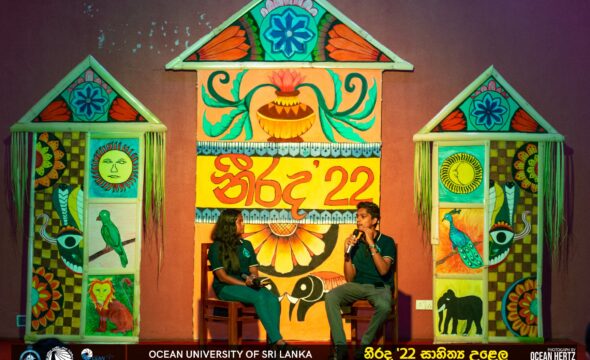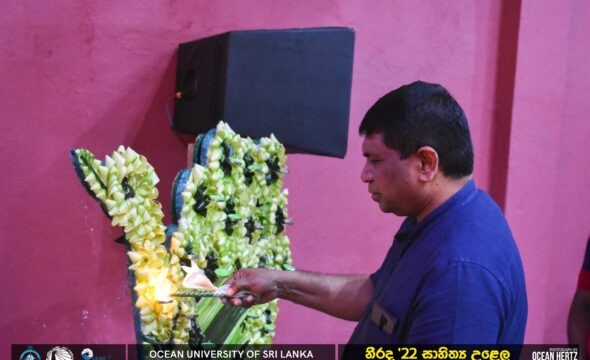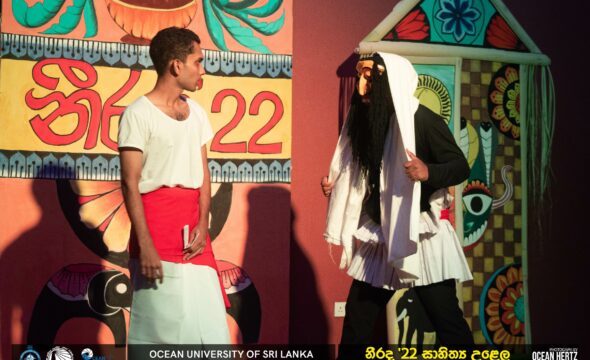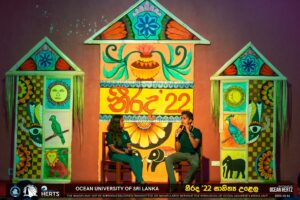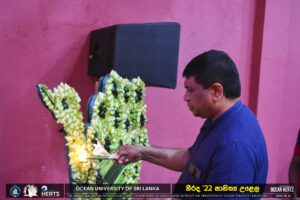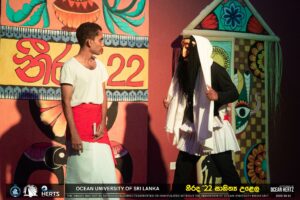Being a small island developing country (SID), the ocean has had a strong influence on the culture, beliefs, values, etc. of the people of Sri Lanka. The strategic location of the country, standing right at the margins of the east-west naval route, has also brought in other cultures, religions and attracted the attention of all the super powers as avenues of expanding their jurisdiction over the marine space. Amidst all forms of influences lie colossal amounts of oceanic resources offering bounteous opportunities for strengthening the country’s economy and improving the wellbeing of the people. SIDs are now confronted with a grave resource crisis due to their small resource base, and are increasingly shifting their focus from green to blue economic growth. Apart from traditional oceanic activities such as shipping and tourism, blue growth also entails, off-the-coast energy generation, marine aquaculture, sub-marine mining,
About us
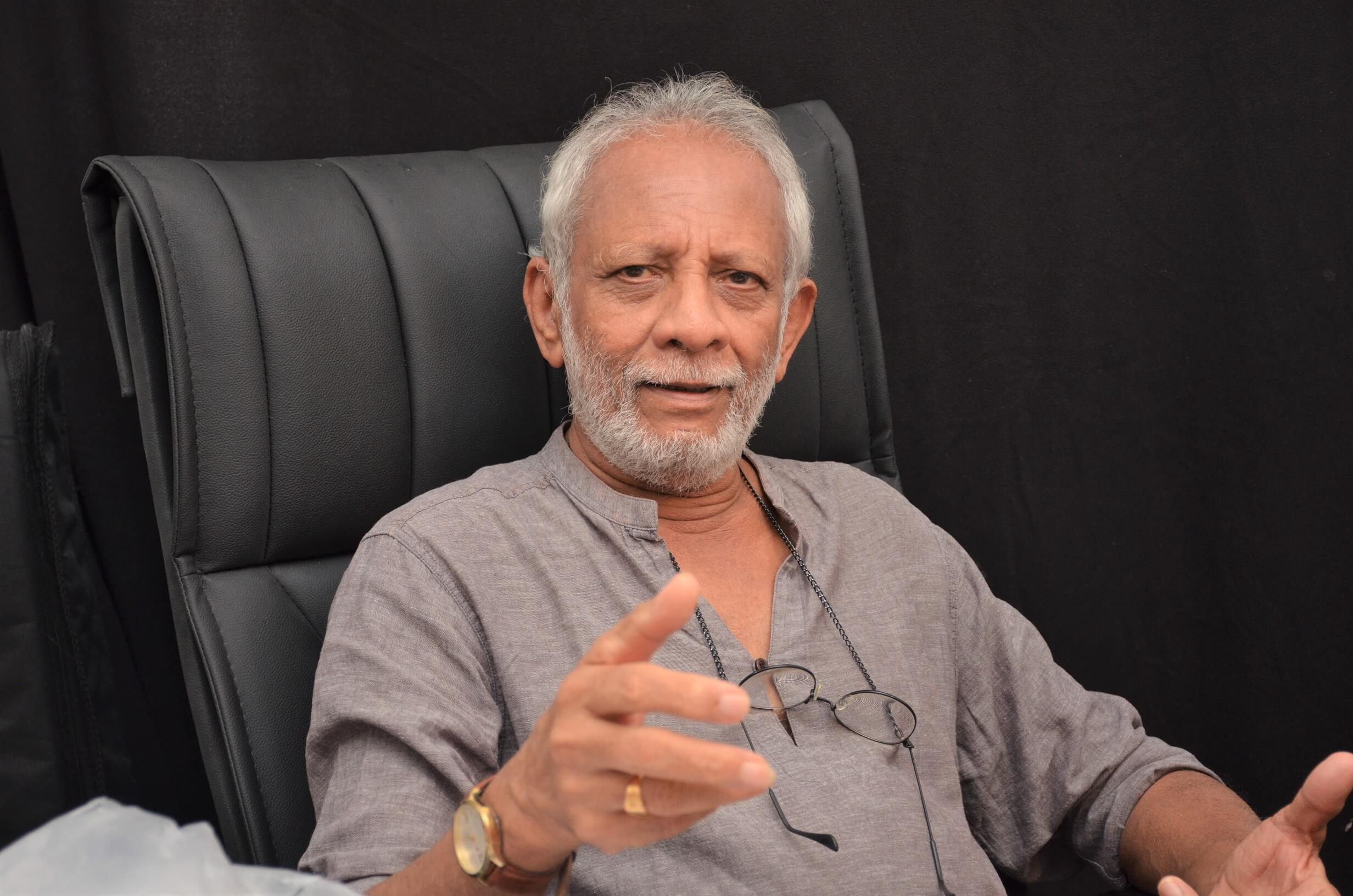
biotechnology, bioprospecting, marine tourism, etc. not forgetting services such as carbon sequestration, coastal protection, biodiversity, etc. which are not captured by the market. This necessitates training the youth of this country to take up new challenges that emerge from this growth process, a function that the Ocean University of Sri Lanka has covenanted to perform. Focusing on key areas such as fisheries and marine sciences, marine engineering and management, the Ocean University has undertaken to train the future decision makers and managers, offering ample learning and training opportunities through the undergraduate and post-graduate degree programmes, and vocational training offered by its training centers well spread out in the country.
With the type of training offered, I am sure the ocean university will produce graduates and mid-level managers who are accomplished and competent to take up employment in the newly emerging sectors, to address the diverse oceanic issues such as resource degradation, unsustainable fishing practices, pollution, and adverse impacts on other sectors, such as the displacement of small scale fisheries, while working towards securing a sustainable ocean ecosystem.
Oscar Amarasinghe
CHANCELLOR
B.Sc.(Agri.,Peradeniya), M.Sc. (Agri.Devt., Ghent, Belgium), Ph.D. (Social Sciences, Namur, Belgium)
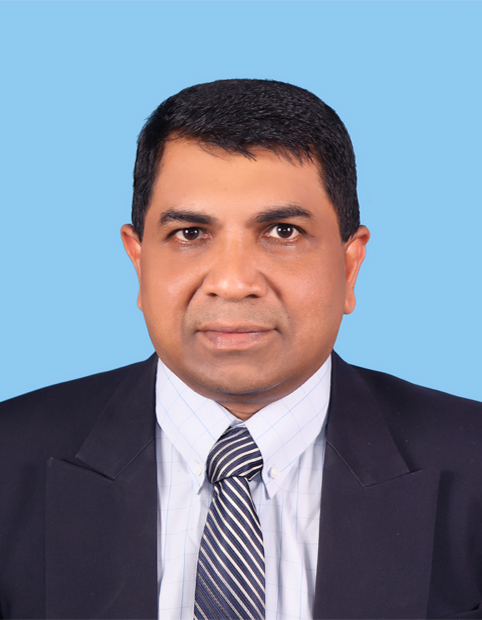
The future prosperity of Sri Lanka depends on how well we control our geographical location as a sea hub and utilizes the marine resources effectively in the surrounding sea. Our location in the Indian Ocean has shaped our history over a long period of time and will continue to do so in the future. New consumer markets are emerging all across Asia and the major economies of China, Japan and India contribute to the growth of the maritime activities in the busy east-west shipping route which is only a few nautical miles south of the island. On this route, more than 150,000 ships annually carry two-thirds of the world’s oil supply and a half of total ocean freight. Furthermore, Sri Lanka has the jurisdiction for its seabed resources up to 200 nautical miles and we have claimed beyond 200 nautical miles under the United Nations Convention of the Law of Sea since geographic conditions support that our river sediments reached far beyond.
Thus, Sri Lanka’s situation in the nautical corridor between the East and West and its natural resources in the surrounding sea has become important for the future development of the country. We as a nation need to reposition our country to maximize these advantages. To fully tap this potential, Sri Lanka needs to develop its human resources and the Ocean University of Sri Lanka must equip itself to cater this important task. At present, the University offers
marine, maritime and fisheries related BSc degree programs, NVQ courses including Higher Diplomas, Diplomas, certificates, Non NVQ courses, STCW courses and on demand mobile short courses in the fields of Engineering, Logistics and Transport and Sciences. Further, it offers skill sector NVQ level diplomas and certificates courses in the same areas from its network of regional centers.
This prospectus is a collective ambition of all the members of the Ocean University to prioritize and organize a productive path to serve the human resource development of marine, maritime and fisheries sector and thus to uplift the lives of the people in the sector which in turn leads to the economic growth of the country.

